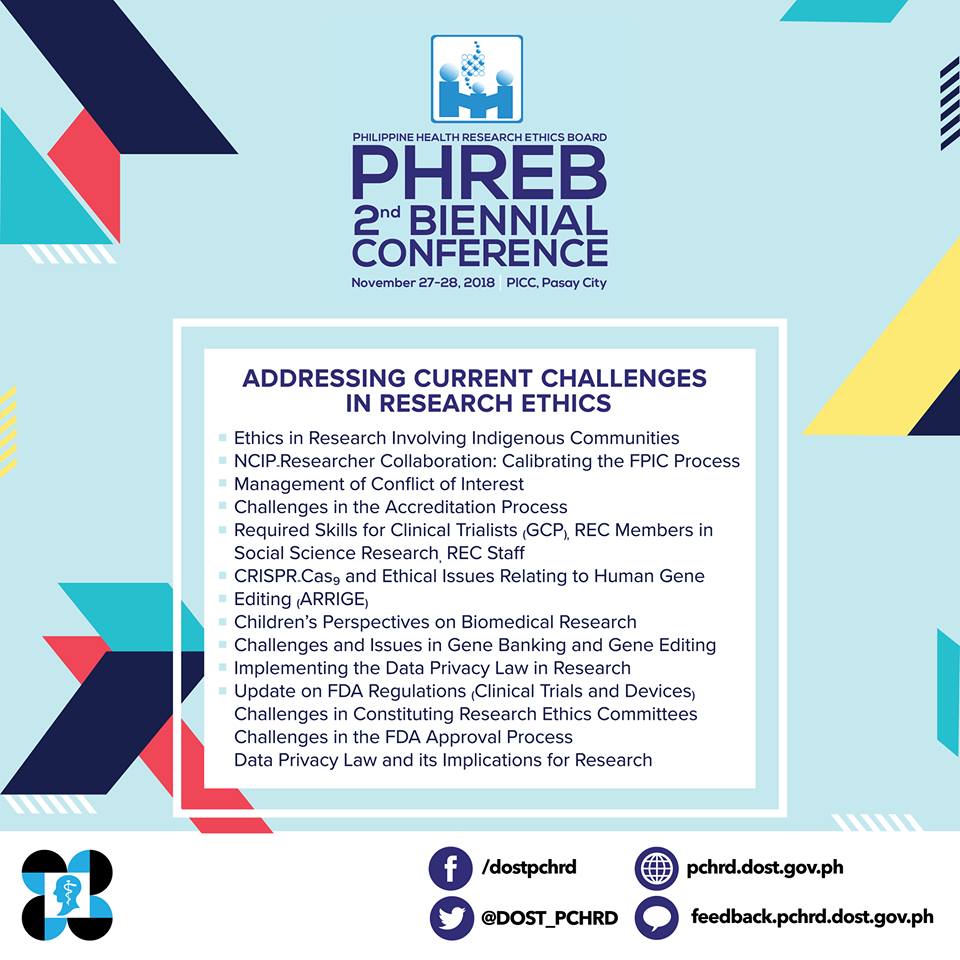- Details
- Category: Latest News
GUIDELINES
I. Purpose
The Department of Science and Technology-Philippine Council for Health Research and Development (DOST-PCHRD) recognizes the vital role of the research mentor who selflessly shares knowledge and skills, instills values and attitudes, and inspires those involved in the research process, thereby creating an enabling environment and contributing to capacity-building in research.
The Best Mentor Award is offered biennially to recognize and reward mentors in health research who have built the capacities of researchers in the health sector and, in the process, propelled significant advances in the Philippine National Health Research System’s (PNHRS) thrusts as identified in the National Unified Health Research Agenda (NUHRA).
II. Objective
The Best Mentor Award recognizes excellence in mentorship that instills passion among researchers, redounding to enhanced relevance and productivity in health research.
III. Definition of Terms The Health Research Mentor is actively engaged in health research as:
trainer
preceptor
adviser
advocate
participant/initiator in health R & D implementation, promotion and utilization
IV. Eligibility
A. Who can nominate
The nominating party may be any of the following:
head of the nominee’s institution or immediate supervisor
colleague/s
trainee/s
student/advisee
Self-nomination is not allowed.
B. Who can be nominated
1. must be a Filipino citizen
2. at least a holder of master’s degree degree
3. actively involved in mentoring researchers/students or colleagues for at least 5 years
4. has a good track record as a researcher in terms of publication, product development or policy formulation
5. professionally involved in health research activities either as a research program/project leader, principal and co-principal investigator, mentor/adviser/trainer, or author/co-author
6. actively involved in health research activities such as conduct of research training and extension work, paper presentations, fund generation, research promotion and networking, research agenda setting, and capacity-building activities
Winners are ineligible for subsequent nominations.
V. How to nominate
Submit the recommendation form (either personally delivered, by courier, or thru email) for initial screening to the regional consortium secretariat. (Please refer to the attached paper for the list of addresses)
For completed DOST-PCHRD and ASTHRDP scholars, submit entries to DOST-PCHRD for screening and endorsement of the PCHRD Scholar’s Society (PSS).
A. For the qualified nominees
The requirements below should be submitted within the deadline
1. Five (5) hard copies of the following documents: 1.1. Accomplished curriculum vitae of the nominee using the prescribed format for Best Mentor Award
1.2. A narrative description (1,000-1,500 words) of the nominee’s mentoring activities, accompanied by supporting documents, e.g. photos and other relevant documentation.
1.3. Description of other achievements attained related to health research for the last 5 years, including supporting documents e.g. photocopy of certificates of recognition/awards/honors received by the nominee, which are relevant to the nominee’s eligibility criteria in Section IV.B
2. Cite names of 5 mentees, their achievements in research, and a narrative description of the nominee’s contribution to the success of each mentored research.
B. Schedule of Selection and Awarding
The award is given every two years.
C. Selection Process
c.1. Procedures

The decision of the National Selection Committee is final.
The consortium must provide DOST- PCHRD with the complete list of nominees from their region.
Documents pertinent to the nomination of non-winners will be returned to their owners.
c.2. Cluster and National Criteria There will be a review of nominations by the Cluster/National Selection Committee based on the following criteria:
c.2.1. Research Guidance 40%
Quantitative Indicators – refers to the no. of research mentees guided, advised or mentored by the candidate; also includes the nominee’s years of experience in mentoring.
Qualitative indicators – to be decided by the evaluators; may include extent, quality/result of the research guidance/mentoring done e.g., awards and other forms of recognition received by the mentor and/or other mentees
c.2.2. Track Record in Research 25%
Publications refer to peer-reviewed journals during the last 5 years:
main author in a Philippine journal or international journal
co-author in a Philippine journal or international journal
Awards received refers to recognition received for the research completed as:
main author/principal and co-principal investigator in the Philippines or International
co-author/member of a research team in the Philippines or International
Paper presented refers to the number of times the nominee presented a paper in a conference, workshop (either oral or poster) in the Philippines or abroad
Completed research covers completed unpublished researches over the last 5 years
c.2.3. Dedication in promoting research 20%
Types of active involvement in five years
Teacher, adviser, panel member, critic
Advocate of policies Reviewer of journal article/editor/member of editorial board/team
Member of professional organization/network Trainor in training courses/resource person/lecturer
Research manager/director, coordinator, evaluator, monitor
Quality of active involvement within 5 years as:
Teacher, adviser, panel member, critic
Advocate of policies Reviewer of journal articles, editor/member of editorial team
Trainor in training courses/resource person Research manager, coordinator, evaluator, monitor
c.2.4. Contribution towards a supportive research environment 10%
Providing research opportunities as:
Organizer/initiator of program, project, policy Organizer/initiator/member of team for workshops, conferences
Organizer/initiator/member of team for training courses Director/chair/administrator for research
Study group leader
Research team leader
c.2.5.Other criteria as agreed by the Evaluators 5%
This may include awards/recognition received by mentees/ advisees/students of the nominee or any agreed criteria; impact of R&D in terms of patenting, commercialization, and/or utilization of research results into policies and actions such as training modules developed, teaching manuals, community modules, contribution to national health development/equity and/or relevance of research results in health care delivery; etc.
c.3. Award Criteria
A nominee must obtain a score of at least 80% to be eligible for the cluster award.
The Selection Committee (cluster and national) has the option not to declare a winner for a given year.
c.4. Composition of the Selection Committee
Cluster Selection Committee
Chair: Representative from non-members of consortia
Members: Representative from DOH Regional Office
Representative from CHED Regional Office
Representative from DOST Regional Office 2 technical experts identified by DOST- PCHRD
National Selection Committee
Chair: To be elected from among the Members of the Committee
Members: Representative from the DOH Central Office
Representative from CHED Central Office
Representative from UP-NIH 2 technical experts identified by DOST- PCHRD

- Details
- Category: Latest News
The Central Luzon Health Research and Development Consortium (CLHRDC) participated in the 12th Philippine National Health Research Week held on August 6-9, 2018 at the CAP John Hay Trade and Cultural Center in Baguio City. Focused on the theme, "Research and Innovation for Equity in Health," the celebration was organized by the Philippine Council for Health Research and Development (PCHRD) together with the Department of Health, Commission on Higher Education and University of the Philippines-Manila and participated in by the health R&D consortia from the different regions. Plenary and parallel sessions that included topics on governance and equity in health, translating research to public health programs, and strengthening research offices of higher education institutions (HEIs) and research and development institutions were conducted. Focused discussions on the current situation, challenges, and advancements to improve health and equity through reinforced health research and innovation in the regions and local communities were also held.
The PNHRS celebration also served as a venue to showcase and recognize the significant contributions of health researches conducted by the students and professional researchers all over the Philippines. Once again the CLHRDC proved its mettle as it took home awards and prizes. Dr. Sarah Jane S. Pineda of Pampanga Agricultural State University participated in the poster exhibit contest with her study entitled: "Identification and Qualification of Antibiotic Residues of Fish Harvested from Pampanga River." On the other hand, Ms. Faye Marion Sebastian of Nueva Ecija University of Science and Technology bagged the 2nd place in the oral research presentation (student category) with her study entitled: "Modified Starch from Bran as Absorbent of Heavy Metals in Aqueous Solution."
Research institutions that have successfully established their respective ethics committees to guide them in the ethical review and conduct of researches in their respective institutions were also recognized. In Central Luzon through the assistance of CLHRDC, two (2) member institutions were awarded Level I accreditation by the Philippine Health Research Ethics Board (PHREB) namely: the Nueva Ecija University of Science and Technology and Holy Angel University. The Tarlac State University, was also granted renewal of their level 1 accreditation. Through the PHREB accreditation, the said institutions will now be able to review research proposals that have minimal risk to participants.
These achievements no matter how meager, will further inspire CLHRDC to work for stronger collaboration with its member institutions to become leaders in health research in Region 3.
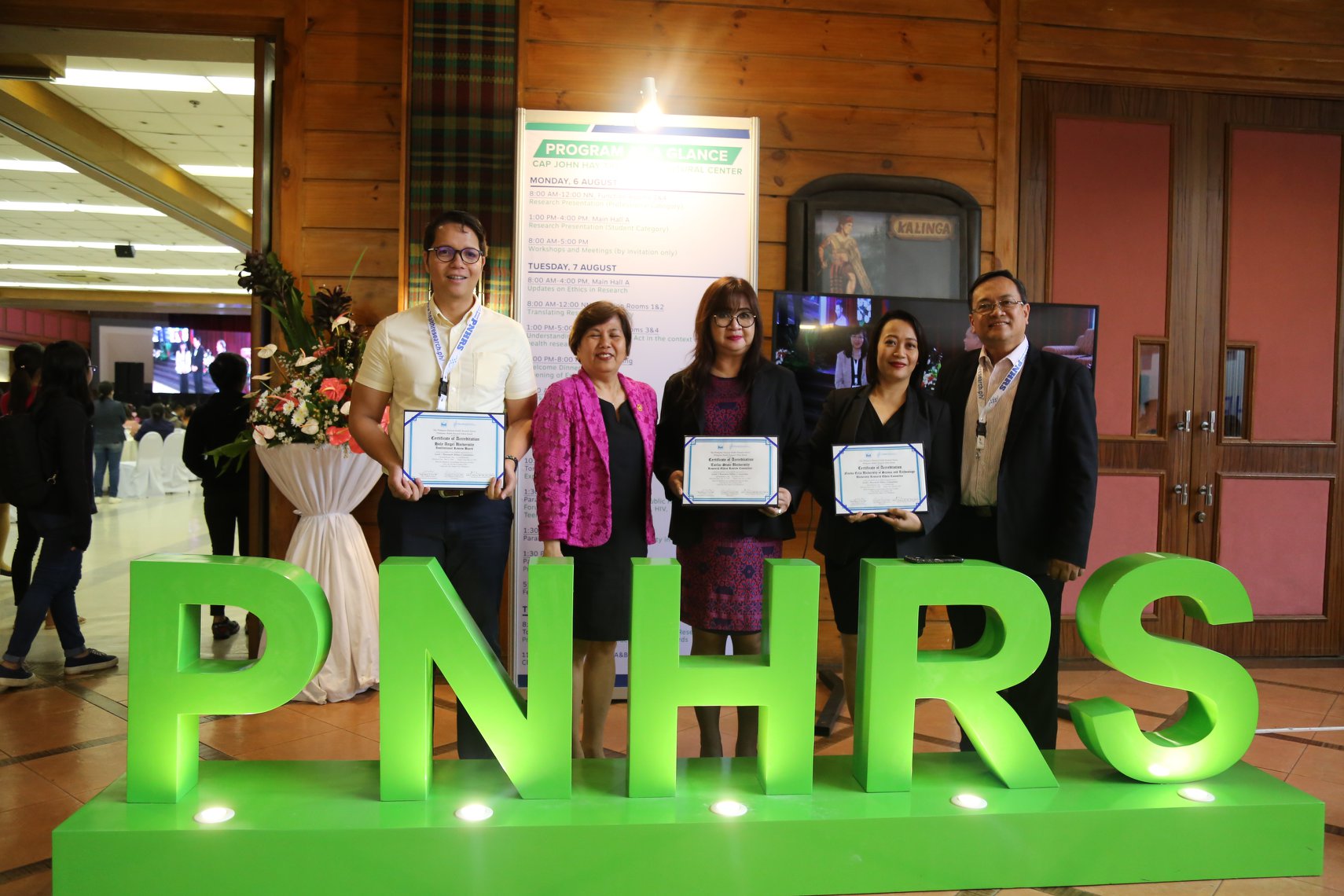
Fig. 1 (left to right) Dr. Al D. Biag of Holy Angel University, Dr Armee N. Rosel and Dr. Lucile Sunga of Tarlac
State University, Dr. Jean N. Guillasper of Nueva Ecija University of Science and Technology with DOST 3 Regional
Director, Julius Caesar V. Sicat.
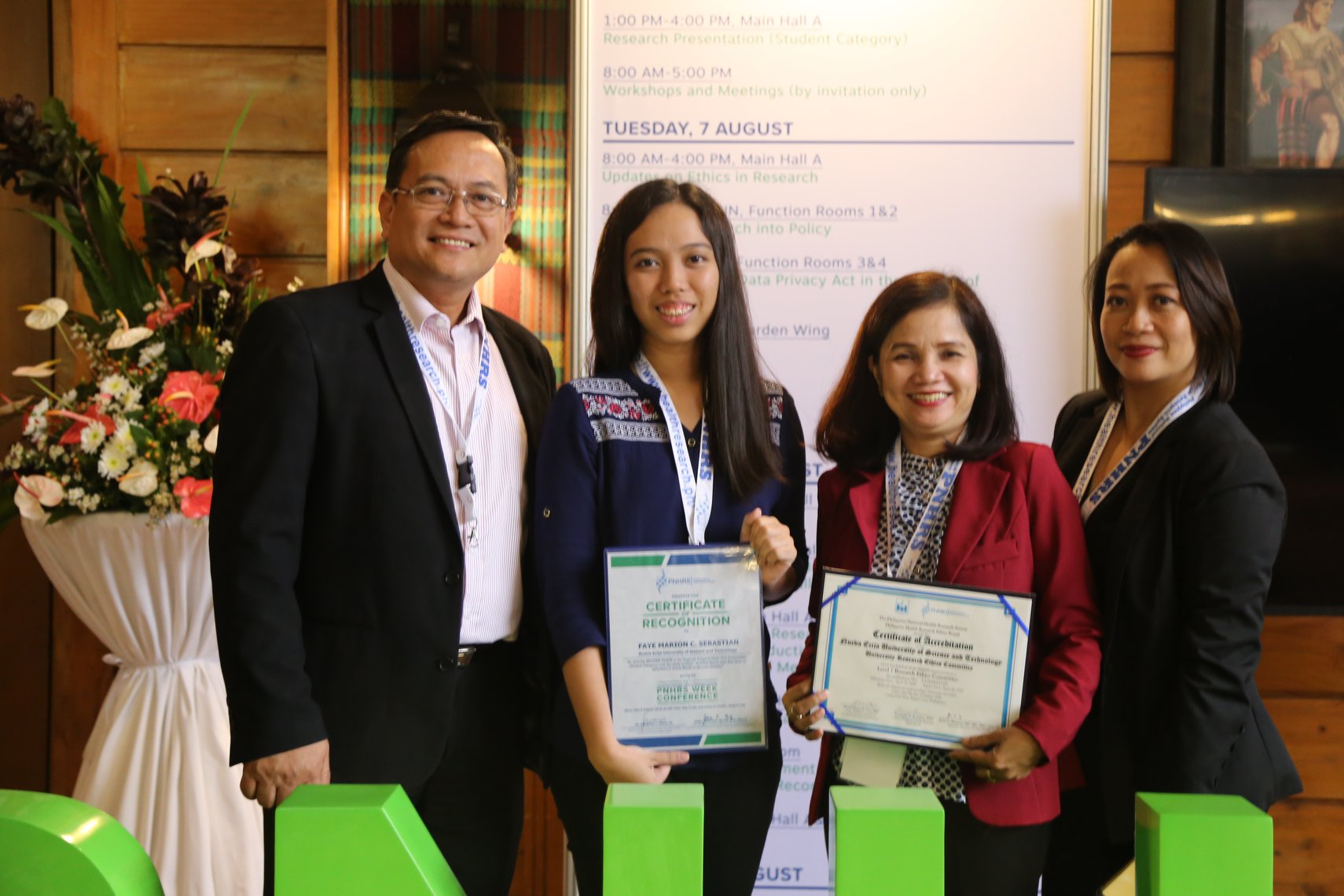
Fig. 2 From left, Dr. Jaycee Sicat, Ms. Faye Marion Sebastion of NEUST, second place in the Oral Research Presentation
(Student Category) together with NEUST President, Dr. Feliciana Jacoba and Dr. Jean N. Guillasper.
- Details
- Category: Latest News
In its continuing effort to reach out to more people and communities in the countryside to promote the activities and projects of the consortium, the CLHRDC joined in the Regional Science and Technology Week held on August 1-3, 2018 at the Bulwagan ng Kanlahi, Tarlac City and spearheaded by the Department of Science and Technology Region III. The RSTW is held annually to highlight the achievement and contribution of the science and technology sector as it relates to national development. This year’s theme is "Science for the People: Innovation for Collective Prosperity." CLHRDC distributed flyers and other souvenir items to the participants.
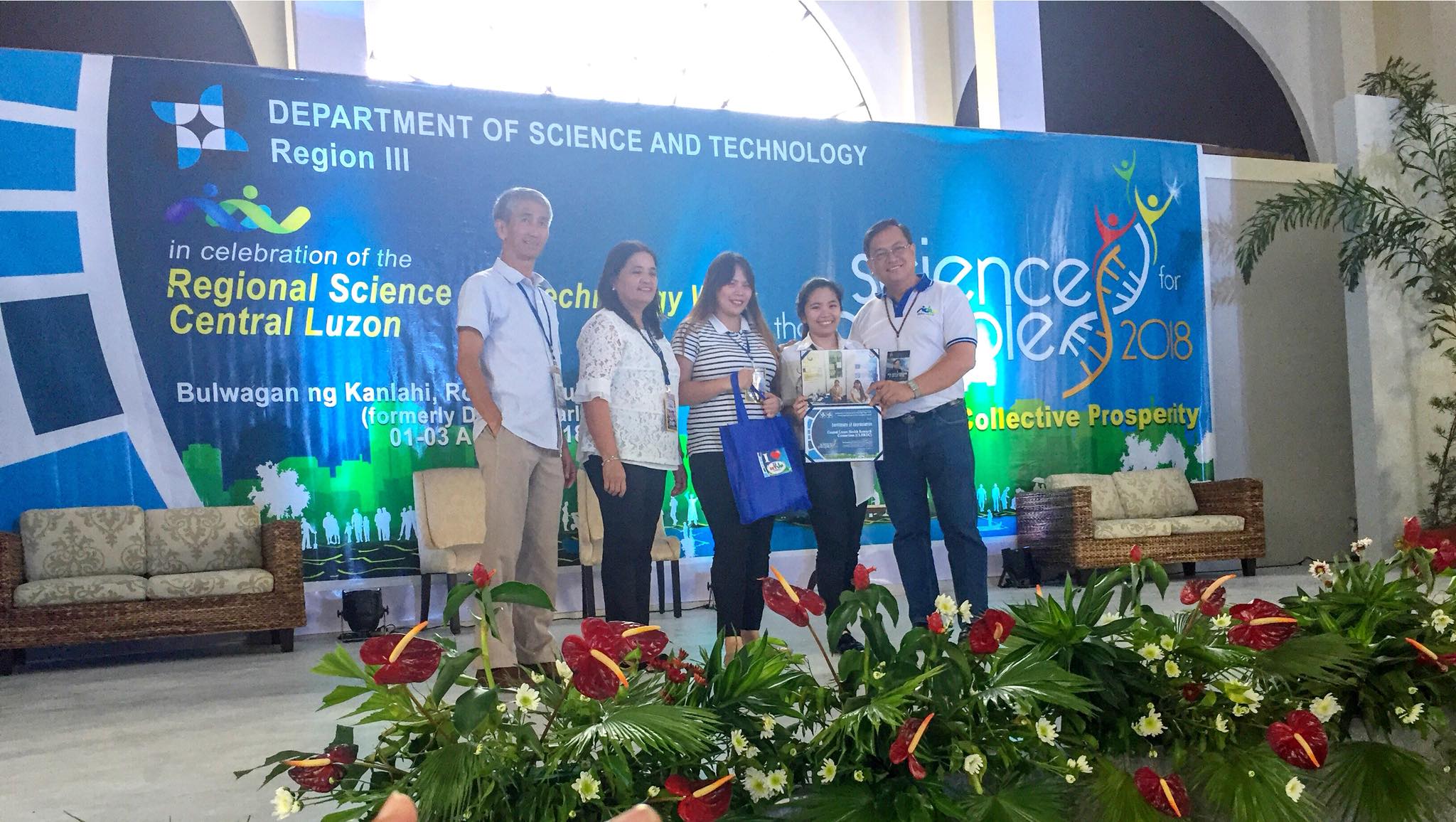 Fig. 1 CLHRDC Staff accepted the certificate of participation as one of the exhibitors during the celebration.
Fig. 1 CLHRDC Staff accepted the certificate of participation as one of the exhibitors during the celebration.
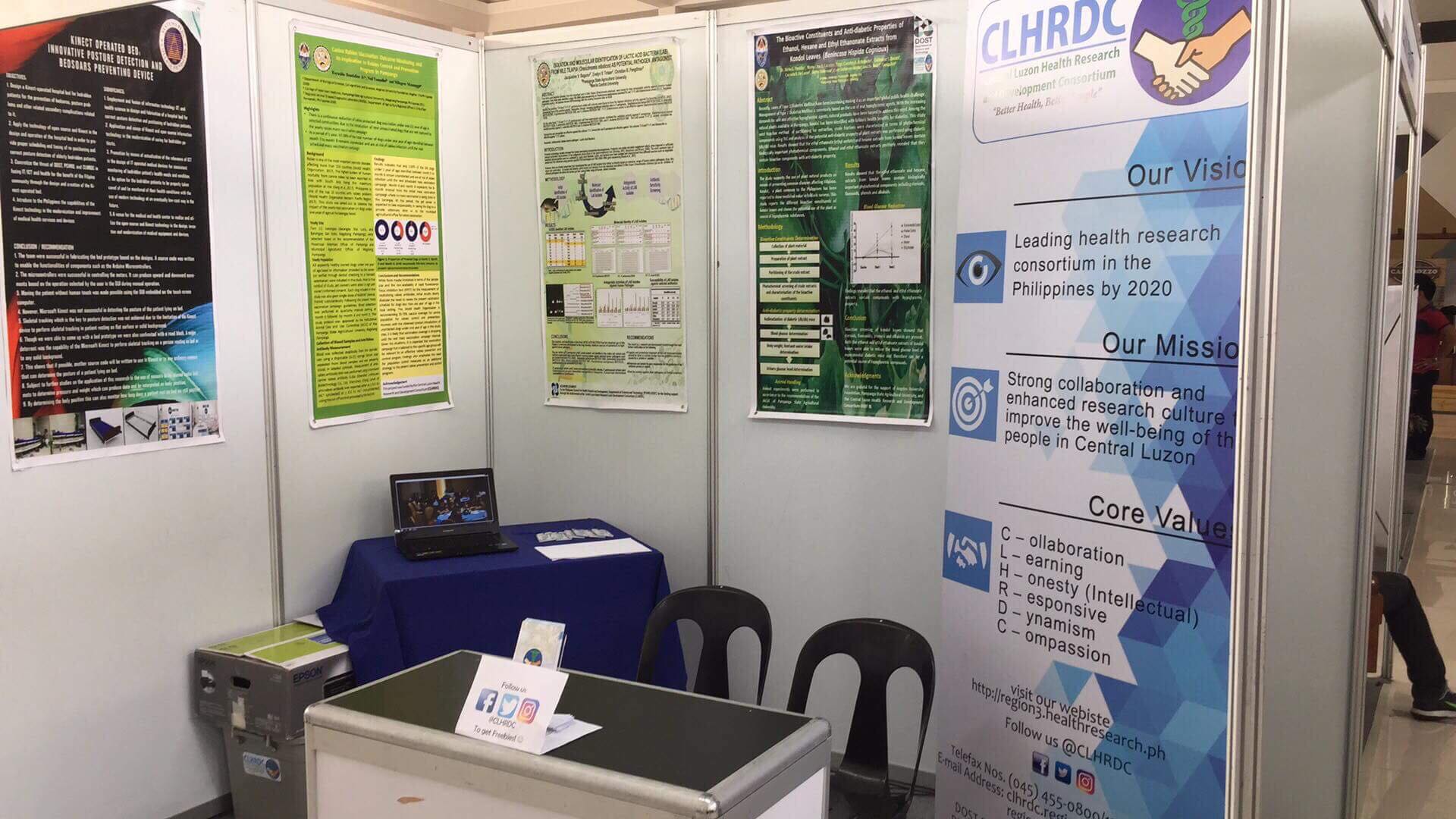
Fig. 2 CLHRDC booth highlighting the accomplishment of DOST- PCHRD funded projects of the consortium
- Details
- Category: Latest News

